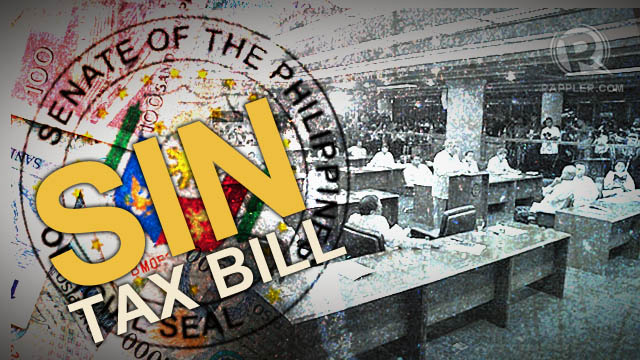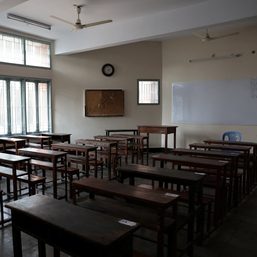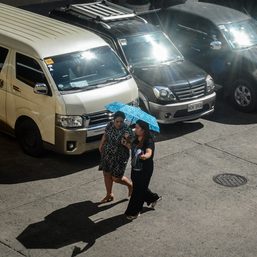SUMMARY
This is AI generated summarization, which may have errors. For context, always refer to the full article.

MANILA, Philippines – The Senate Committee on Ways and Means is endorsing a revenue target of P15 billion to P20 billion from proposed increases in “sin” taxes — about half of what was set under a bill approved by the House of Representatives and way below what the Finance department wanted, according to a source privy to the matter.
Signed by its chair Sen Ralph Recto, the committee’s report, a copy of which was obtained by Rappler, is now being circulated among panel members for approval.
The report dilutes mainly the tax system for cigarettes under approved House Bill (HB) 5727.
It recommends 3 tiers — to be downgraded to 2 by 2020 — for cigarettes, and 3 and 4 tiers for fermented liquor and distilled spirits, respectively. These are against 2 tiers for cigarettes, and 2 and 3 tiers for fermented liquor and distilled spirits under HB 5727.
The tax rates for alcohol products under the Senate’s version are in the same range as the House’s, but the rates for cigarettes are down significantly.
Recto had said that previous revenue targets from proposed sin tax increases were “unrealistic.”
Senate Ways and Means Committee Report on Sin Tax
View: Live blog of the September 20 Senate hearing on sin tax bill
In June, the House passed HB 5727, which seeks to raise P31 billion in additional revenues in the first year of implementation.
Although it was a historic move — since efforts to reform the sin tax law had been frustrated in Congress for over 15 years — what the House passed was a watered-down version of the original Finance department-backed bill that sought to raise P60 billion in the first year.
Sin tax advocates fear that with further watering down, the measure would no longer achieve its targeted impact.
The measure aims to increase the prices of tobacco and alcohol by imposing higher tax rates on them to discourage the poor and young from consuming the products.
Of the additional revenues it will raise, 85% will be used primarily to fund the government’s universal health care program benefitting mostly the poor. The remaining 15% will be used to assist tobacco farmers in shifting to viable, alternative crops. – Rappler.com
For related stories, read:
Add a comment
How does this make you feel?
![[In This Economy] El Niño-nomics: How intense heat is drying up the Philippine economy](https://www.rappler.com/tachyon/2024/05/TL-El-nino-nomics-May-3-2024.jpg?resize=257%2C257&crop=264px%2C0px%2C720px%2C720px)
![[OPINION] Demystifying net-zero and climate reporting in the Philippines](https://www.rappler.com/tachyon/2024/05/TL-climate-reporting-philippines-May-3-2024.jpg?resize=257%2C257&crop_strategy=attention)



![[In This Economy] Is the Philippines quietly getting richer?](https://www.rappler.com/tachyon/2024/04/20240426-Philippines-quietly-getting-richer.jpg?resize=257%2C257&crop=194px%2C0px%2C720px%2C720px)
![[In This Economy] A counter-rejoinder in the economic charter change debate](https://www.rappler.com/tachyon/2024/04/TL-counter-rejoinder-apr-20-2024.jpg?resize=257%2C257&crop=267px%2C0px%2C720px%2C720px)
![[Vantage Point] Joey Salceda says 8% GDP growth attainable](https://www.rappler.com/tachyon/2024/04/tl-salceda-gdp-growth-04192024.jpg?resize=257%2C257&crop_strategy=attention)
![[ANALYSIS] A new advocacy in race to financial literacy](https://www.rappler.com/tachyon/2024/04/advocacy-race-financial-literacy-April-19-2024.jpg?resize=257%2C257&crop_strategy=attention)
There are no comments yet. Add your comment to start the conversation.